How should Ukraine ensure justice during war and overcome its consequences: Ukraine 5AM Coalition holds discussion
The Mission of the President of Ukraine in Crimea hosted the discussion on the occasion of International Justice Day, marked on July 17, as part of the recognition of the new system of international criminal justice, including the International Criminal Court in The Hague.
This year marks 25 years since the adoption of the Rome Statute. The ICC launched an investigation into the Ukrainian situation and issued arrest warrants for the Russian president and the children’s rights commissioner, however, the vast majority of war crimes committed during the Russian-Ukrainian war should and will be investigated in Ukraine.
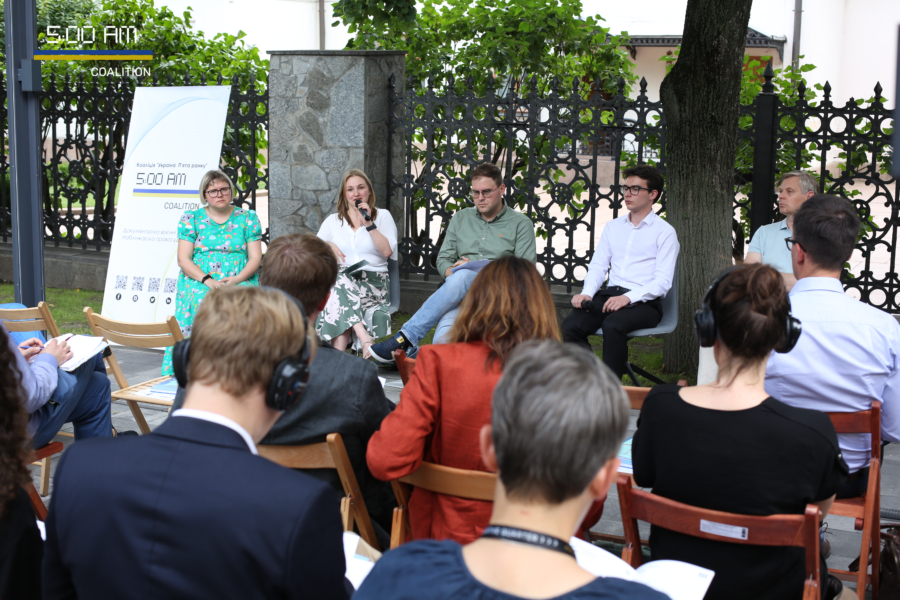
The discussion in the Chatham House format was organized by Ukraine 5AM Coalition. The event was held with the support of the Ministry of Foreign Affairs of the Netherlands.
Is it real to ensure justice in a country at war? Can fair verdicts be delivered in cases of international crimes under conditions of intense public pressure and high demand for revenge and speedy justice? Can the justice system cope with a huge number of crimes committed during the war against Ukraine? How can this system be strengthened? What are the prospects for the establishment of an international tribunal and what can be expected from it?
Arie Mora, expert of the Ukrainian Legal Advisory Group/ULAG, Olha Reshetylova, coordinator of the Media Initiative for Human Rights, Volodymyr Hryshko, lawyer of the DEJURE Foundation, Maksym Yelihulashvili, member of the board of the Institute for Peace and Common Ground, and Roman Romanov, director of the Human Rights and Justice program at the International Renaissance Foundation, spoke about the vision of the processes that currently exist in Ukraine and changes needed. Alyona Lunyova, advocacy director of the Human Rights Center ZMINA, moderated the discussion.
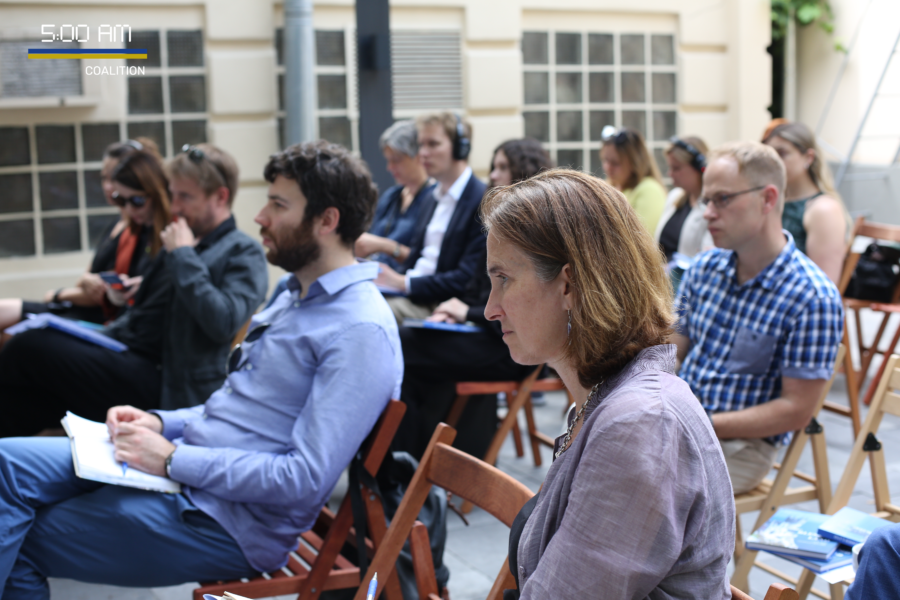
In particular, the meeting participants stated that there is a demand for quick justice in society, but it is not always about fairness. Nationwide polls show that 75% of Ukrainians want accountability for the crimes committed during the Russian aggression in Ukraine. At the same time, three-quarters are also not ready to wait for the end of the war for this, they want to see punishment and justice now. This puts tremendous pressure on the judicial system.
Experts also say that sometimes the consideration of cases in absentia, i.e., in the absence of the accused, is more like a judicial assembly line. To avoid formal considerations, war crime trials require society’s control and media presence.
The number of war crimes registered by the Prosecutor General’s Office of Ukraine as a result of armed aggression today reaches almost 100,000. In fact, no judicial system can process such volumes. However, although the war has been going on since 2014, only as of 2022-2023 did the vectors of where to move and what to do become clear for Ukraine. And the judicial authorities have yet to grasp all the intricacies of international criminal and international humanitarian law.
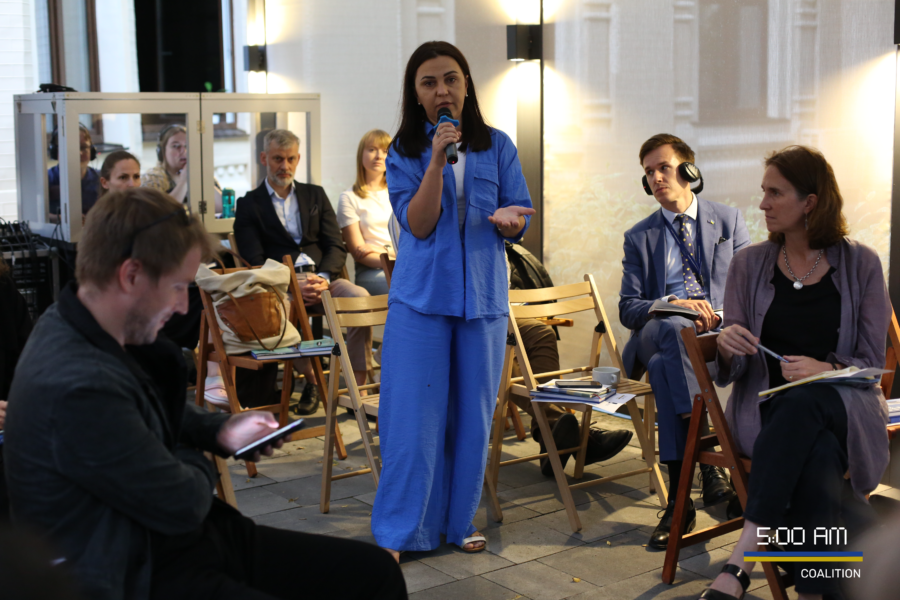
By themselves, court rulings are not always able to ensure a sense of justice. Therefore, it is worth thinking about what else might be needed in addition to criminal justice. Experts are convinced: everything that was documented eventually becomes a space for rehabilitation, for the restoration of dignity and the social fabric destroyed by the war. Therefore, it is worth thinking about what extrajudicial mechanisms will be developed and how the dialogue within society will be built.
In addition, the issue of people who are fighting now was discussed: they do not want lynching, they want to see justice and the prosecution of those who committed war crimes. Fifty-five percent of surveyed Ukrainians consider lynching unacceptable. At the same time, 40% have the opposite opinion, and this issue polarizes society much.
Unfortunately, the entire population of Ukraine is actually a war victim. The vast majority of people want, first of all, the punishment of war criminals, not compensation for the damage.
The discussion participants believe that it is not possible to rely only on the position of a victim while communicating with the international community, and thereby form the appropriate attitude. Civil society could claim a different format of dialogue, where the voice of Ukrainians would not only be the voice of the victims.
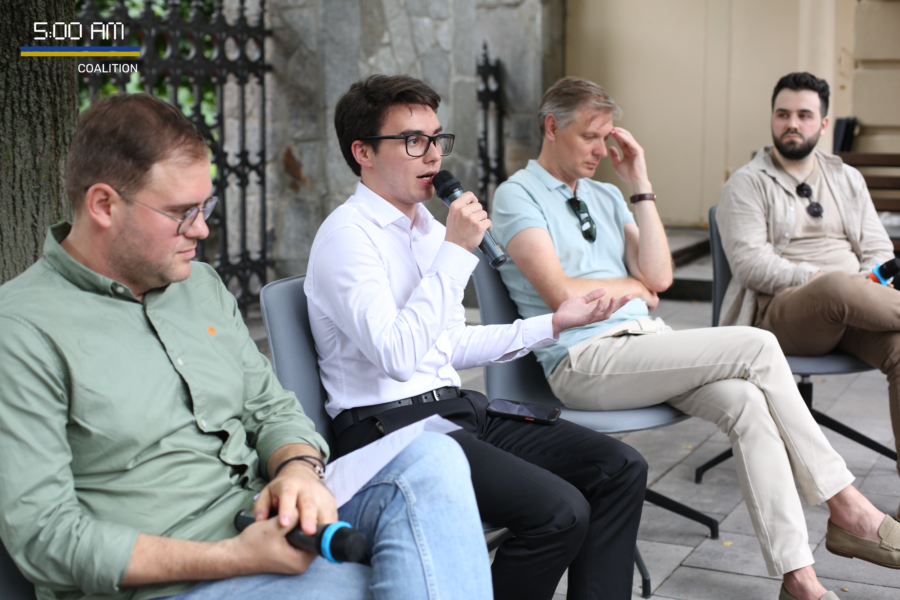
Another important issue raised during the event and that has long needed a solution: Ukraine should ratify the Rome Statute of the International Criminal Court to fully use the existing mechanism of international justice.
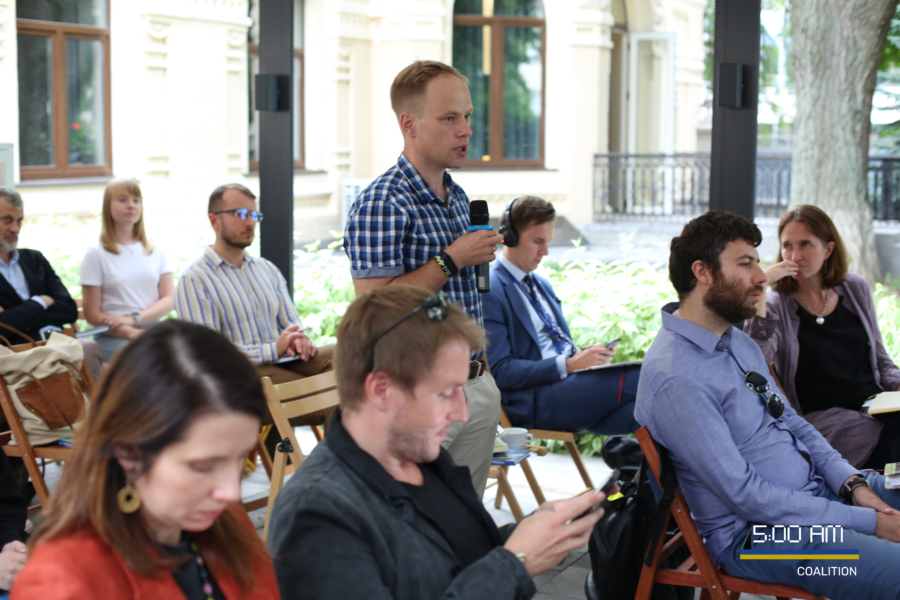
Read the researches that formed the basis of the discussion and explain the issues in more detail at the links:
- “Models for trying war crimes and other significant human rights violations within the national judicial system” by DEJURE Foundation
- “How are war-related court cases progressing? Interim findings of MIHR monitoring” by Media Initiative for Human Rights
- “Justice for international crimes due to aggression of the Russian Federation: the position of judges, veterans, and the request of the population of Ukraine” by ULAG
If you have found a spelling error, please, notify us by selecting that text and pressing Ctrl+Enter.















